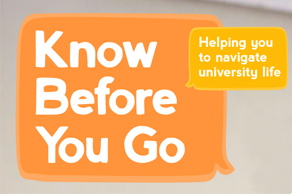What we do
The mental health and wellbeing team consists of counsellors, mental health advisers and wellbeing advisers. We offer free, confidential appointments 51 weeks of the year, Monday to Friday across the City Centre (Curzon) and City South (Seacole) Campuses for our students to access.

Our experienced, professional advisers can help if you are experiencing all kinds of issues, including:
- Concerns about your wellbeing – anything that is getting in the way of your studying and enjoying life at university, including concerns about relationships, sexuality and gender, accommodation difficulties, healthy lifestyle and homesickness.
- Emerging mental health issues – sleeping problems, feeling anxious or isolated, experiencing low mood, thinking about harming yourself.
- Diagnosed mental health difficulties or illness.
Our services
You don’t have to get to crisis point before you talk to us. Every year, we see many students who have a range of wellbeing concerns or mental health support needs, so you are not alone in what you are experiencing.
Our services are free, confidential and can be accessed at the Curzon and Seacole buildings. We can provide one-off general advice or longer-term support. We can also help you to access the support of a specialist mentor as funded by Disabled Students’ Allowances.
The counselling and wellbeing staff provide professional support services for students that meets the BACP Ethical Framework. Support services for students include the ability to offer appointments with counsellors, wellbeing advisers, mental health advisers and cognitive behavioural therapists. We provide links to quality resources available within the University and provided by external agencies. Support services for staff include education and training sessions on mental health awareness, and mental health first aid.
Before you come to university, we offer pre-entry appointments to students who wish to discuss the support the University can offer in relation to mental health and wellbeing. Our pre-entry appointments give students the opportunity to ask questions and address any concerns about starting at Birmingham City University.
If you have declared you have a disability through your UCAS form, you will receive a contact from either the mental health and wellbeing Team, or the disability team, dependant on the nature of your disability with further information on our services.
We continue to review and develop the service to meet students’ needs and ensure high-quality provision. We continually review the efficacy of the agencies we refer on to, and maintain close links with reputable agencies that we feel can add value to our students.
We do not offer a crisis or home visit service. Students seeking immediate support may wish to contact one of the below sources of support:
- If you or someone else is at immediate risk to their physical or mental wellbeing while on university premises, they should call Security on 0121 331 6969 or the Emergency Services on 999 or go directly to the nearest Accident and Emergency (A&E) department.
- Your GP
- Forward Thinking Birmingham support young people with a variety of needs such as early intervention psychosis. They provide immediate help in crisis situations. Available 24/7 by calling 0300 300 0099
- If you need urgent medical help but it is not a life-threatening situation ring 111 to speak to an operator who will direct to the appropriate NHS service.
Care leavers
We also provide an information and guidance service for young people leaving local authority care who are thinking about coming to university, applying or currently studying here.
Mental health
Our advisers offer:
- Advice, information and support if you have concerns about your mental health, whether you are thinking about applying to university, have already applied or are currently studying here.
- Assessment of any practical support requirements you may need and liaise with your school to ensure that they are met. This could include extra time in exams or for assignments, for example.
- Advice about your eligibility for additional funding; Disabled Students’ Allowance (DSA) and how to apply for it. If you think you are eligible for DSA, we recommend you apply for it a few months before you are due to arrive at university. For example, DSA can pay for one-to-one mentor or study skills support.
- Acting as a link between your NHS (or other external agencies) treatment team and the University.
- Offering pre-entry appointments to students who have disclosed a mental health diagnosis to allow opportunity for students to meet with a member of the team to discuss support and any concerns about starting university.
We also provide advice and training to teaching and support staff within the University, so they can better support the students they work with who have mental health difficulties. Our aim in this is to help create a positive environment, challenging stigma about mental health difficulties so that you can succeed at university. Our mental health policy explains this in more detail.
Is this different to counselling?
Our advisers and counsellors can all help students who are experiencing emotional or psychological difficulties. However, the main difference is that the advisers concentrate on practical support rather than therapeutic work. Don’t worry if you aren’t sure which type of service to choose – we all work closely together and can advise you what may be appropriate to your needs.
Get information about how our counselling service works.
Wellbeing
Student wellbeing advisers offer advice and support with general wellbeing concerns including the following:
- Relationships at university, accommodation difficulties, healthy lifestyle, homesickness, experiences of abuse or assault, forced marriage, questions around sexuality and/or gender, and anything else that might be impacting on your time at university.
- Acting as a link between other services both internal and external to the University including the NHS, local authority and other support services.
- Advice and support with things that are impacting on your course and whether you are eligible for short or long term adjustments around your course.
BCU Wellbeing app
Created by a team of experts with the support of the BCU's Mental Health and Wellbeing Team, the BCU Wellbeing app aims to support students throughout their studies, helping them to create healthy habits, increase productivity, and live a healthy and positive lifestyle.
The app is available 24/7 and has loads of tips and tools to help address concerns such as anxiety, stress, managing emotions, and confidence. These tools and techniques include mindfulness, breathing control, help channelling thoughts, and more.
Current students can download the app by searching BCU Wellbeing in the app store.

Know Before You Go
Know Before You Go is here to provide a single source of information and tips around the important topics that aren't usually talked about. Download the guide that will help you navigate university life.